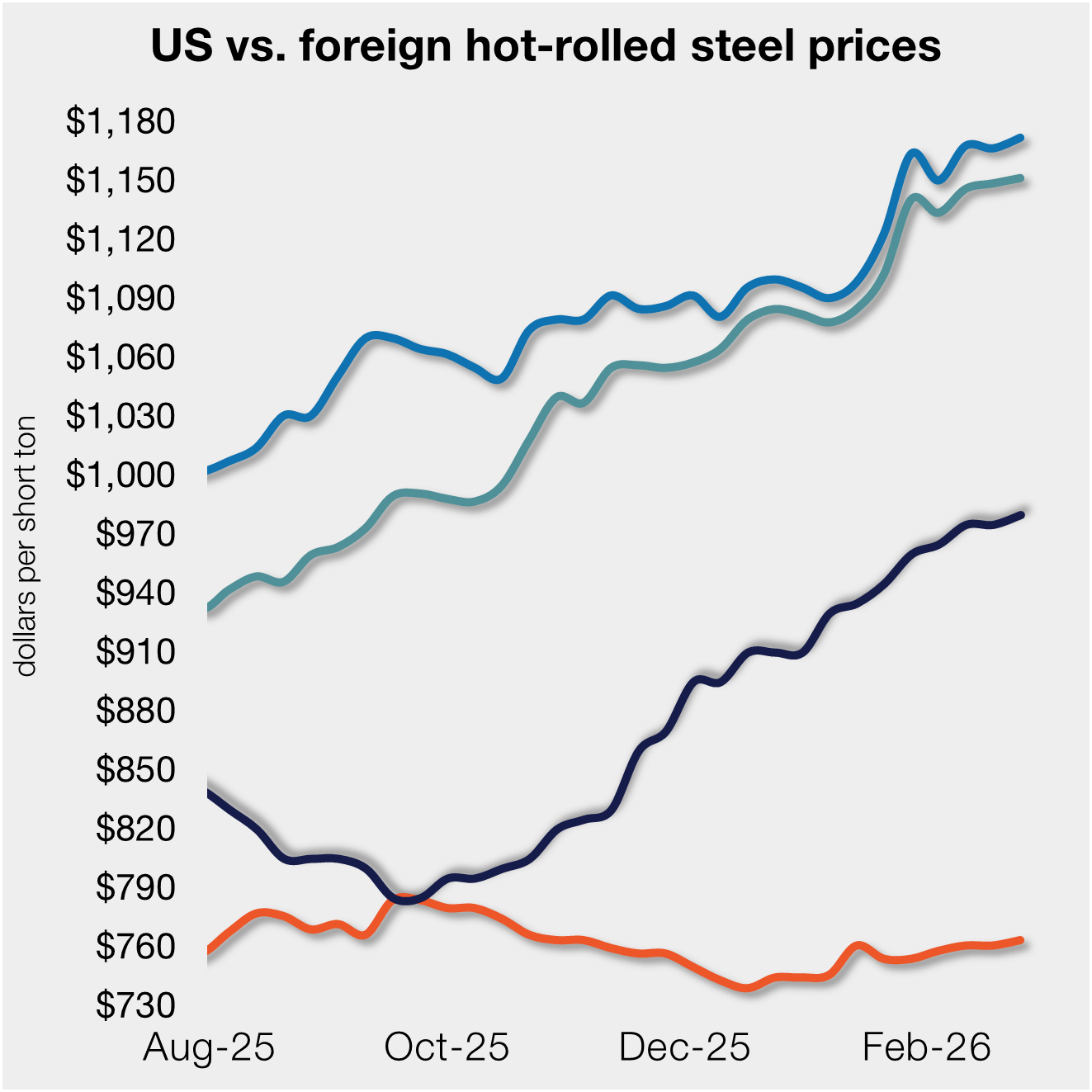Prices
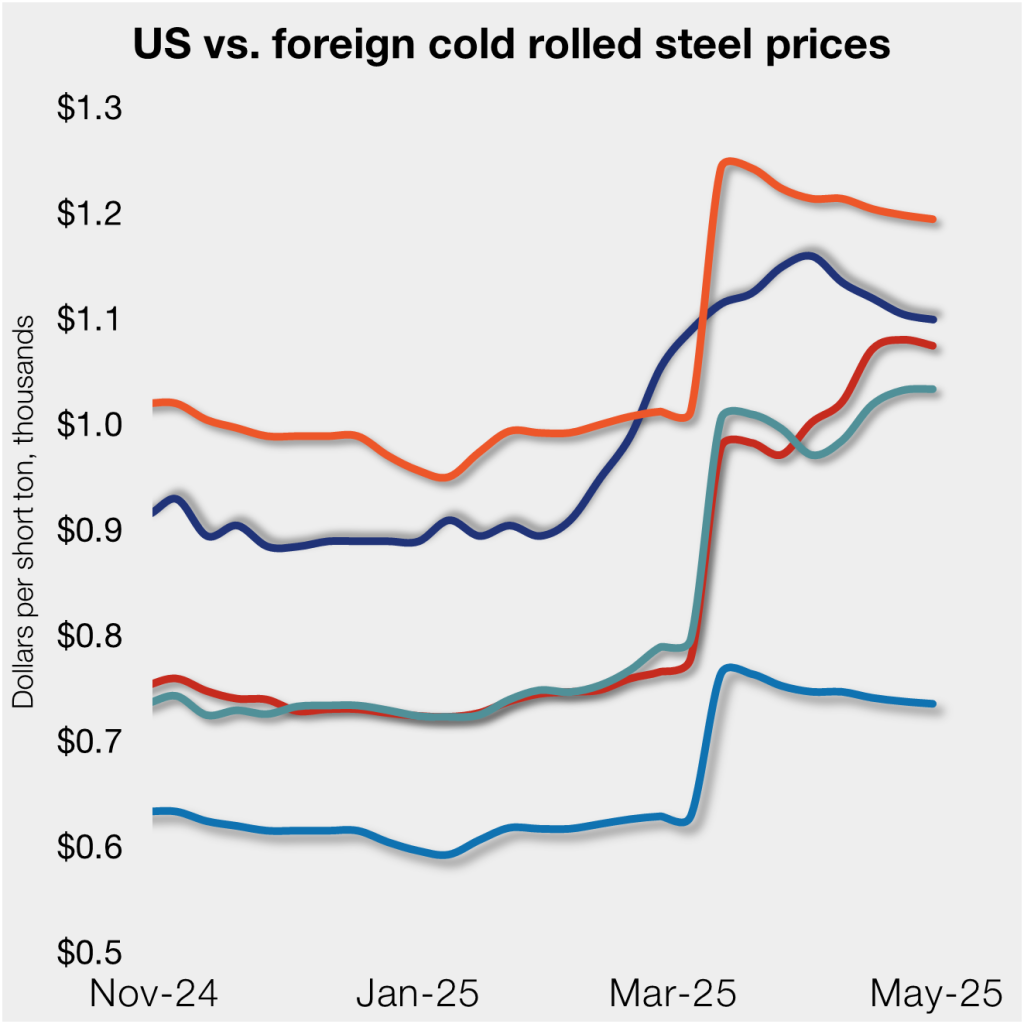
May 2, 2025
US, offshore CRC prices edge lower
Written by David Schollaert
US cold-rolled (CR) coil prices edged lower again this week, slipping four weeks in a row now. Most offshore markets mirrored the move, ticking down marginally as well.
As a result, the US premium over imports on a landed basis was nearly flat week on week (w/w).
In our market check on Tuesday, April 29, US cold-rolled (CR) coil prices averaged $1,100 per short ton (st), down $5/st from the previous week. The price decline comes as uncertainty in the US market around tariffs has kept buyers on the sidelines.
By the numbers
Domestic CR prices are now, theoretically, 12.2% higher than imports. That premium is down minimally from 12.4% the previous week and well below 33.9% just before the return of new Section 232 tariffs, which took effect in March.
In dollar-per-ton terms, US CR is, on average, $90 per short ton (st) more expensive than offshore product (see Figure 1) – down just $2/st w/w and now nearly $200/st lower with new S232 tariffs in effect.
The charts below compare CR coil prices in the US, Germany, Italy, South Korea, and Japan. The left side shows prices over the last two years, and the right side zooms in to highlight more recent trends.
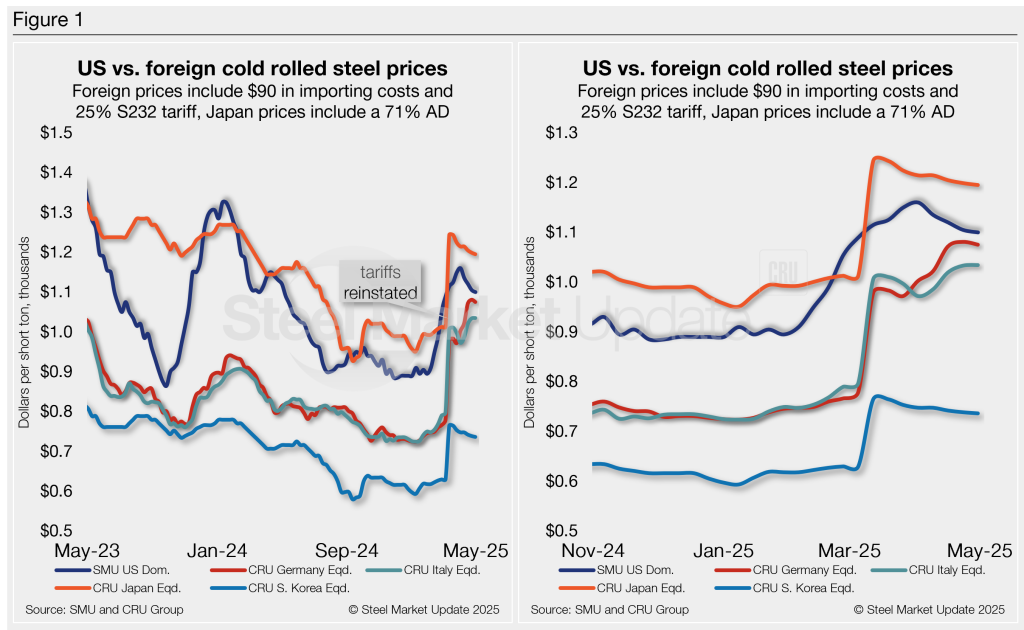
Methodology
SMU calculates the theoretical price difference between domestic and imported cold-rolled (CR) steel by comparing our US CR price (FOB domestic mills) with CRU’s indices (DDP US ports) for Germany, Italy, and East Asia (Japan and South Korea). This is an estimate, as actual import costs vary.
To approximate the cost of foreign steel delivered to US ports, SMU adds $90/st to foreign prices to cover freight, handling, and trader margins. This benchmark can be adjusted based on individual shipping costs. (If you import steel and have insights on these costs, you can contact the author at david@steelmarketupdate.com.)
East Asian CR coil
As of Thursday, May 1, the CRU Asian CR price stood at $517/st, down just $2/st w/w. Factoring in a 71% anti-dumping duty (Japan, theoretical), a 25% S232 tariff, and $90/st in estimated import costs, the delivered price to the US is $1,195/st. The theoretical landed price of South Korean CR exported to the US is $736/st.
With the latest SMU CR price down $15/st to an average of $1,100/st, US-produced CR is now theoretically $95/st below Japanese imports but $364/st above South Korean imports.
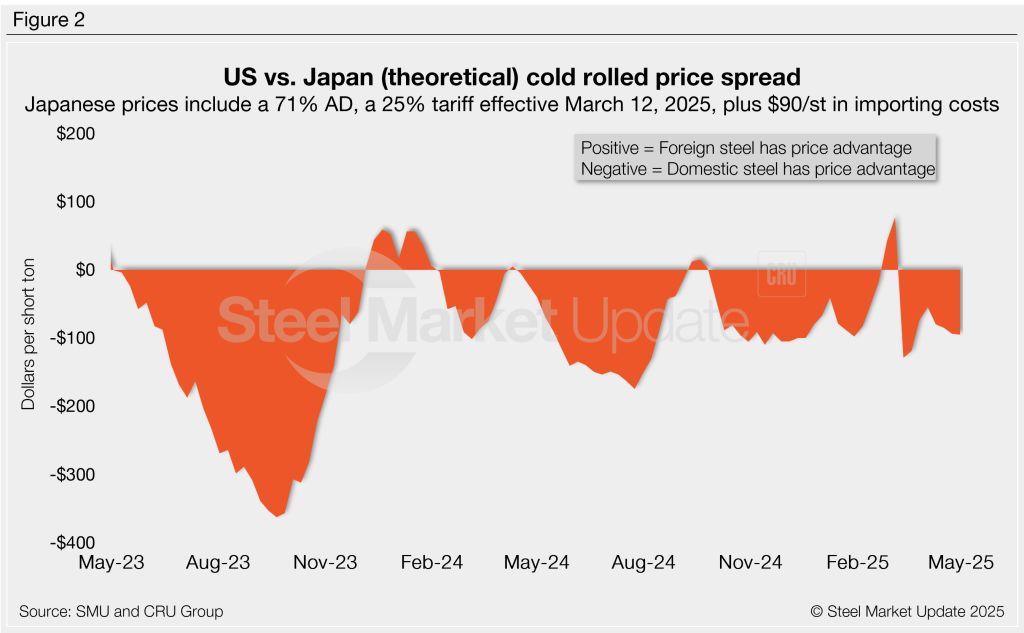
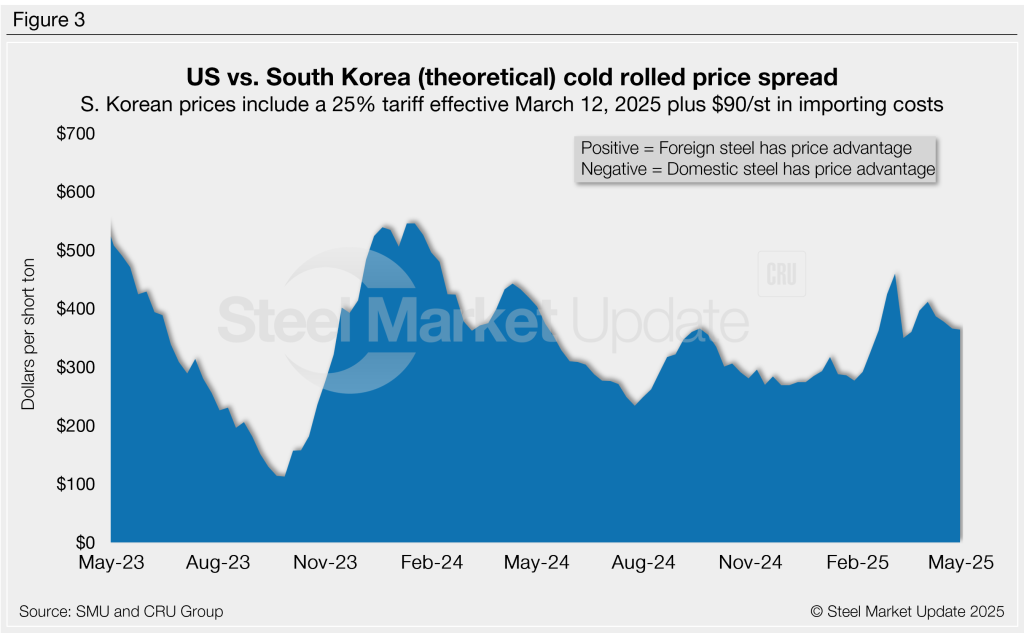
Italian CR coil
Italian CR prices were just $1/st higher this week to $756/st. After adding import costs and a 25% tariff, the price of Italian CR delivered to the US is, in theory, $1,035/st.
That means domestic CR is still theoretically $65/st more expensive than CR coil imported from Italy. The spread is down $7/st vs. last week, but $227/st off from about seven weeks ago before S232 was reinstated.
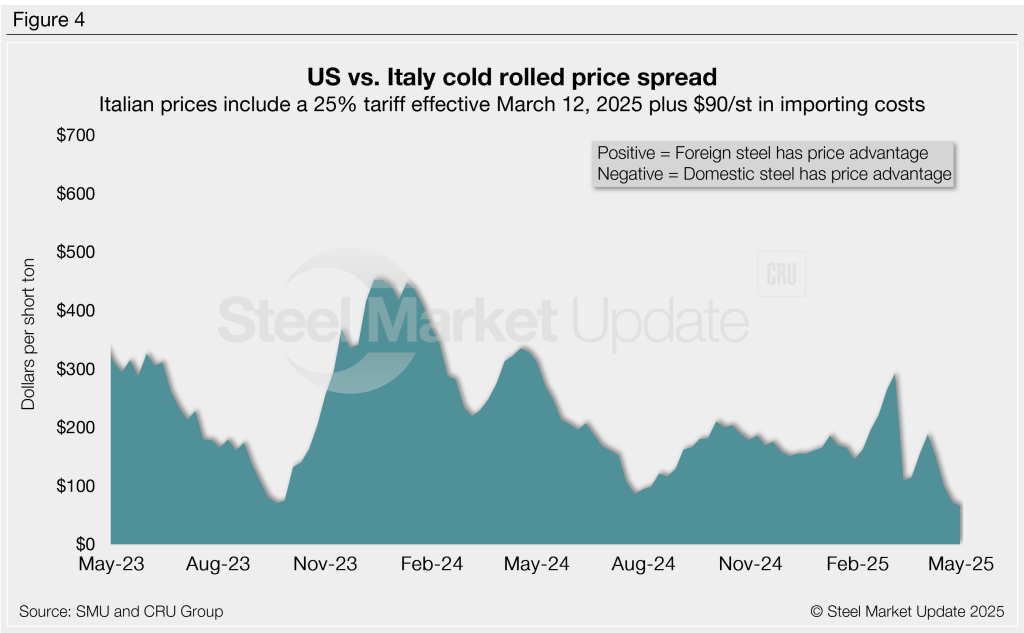
German CR coil
CRU’s German CR price was down $5/st vs. the previous week. After adding import costs and a 25% tariff, the delivered price of German CR is, in theory, $1,075/st.
The result: Domestic CR is theoretically $25/st more expensive than CR imported from Germany. The spread is up $1/st w/w, yet still nearly a $290/st cut since the new version of S232.
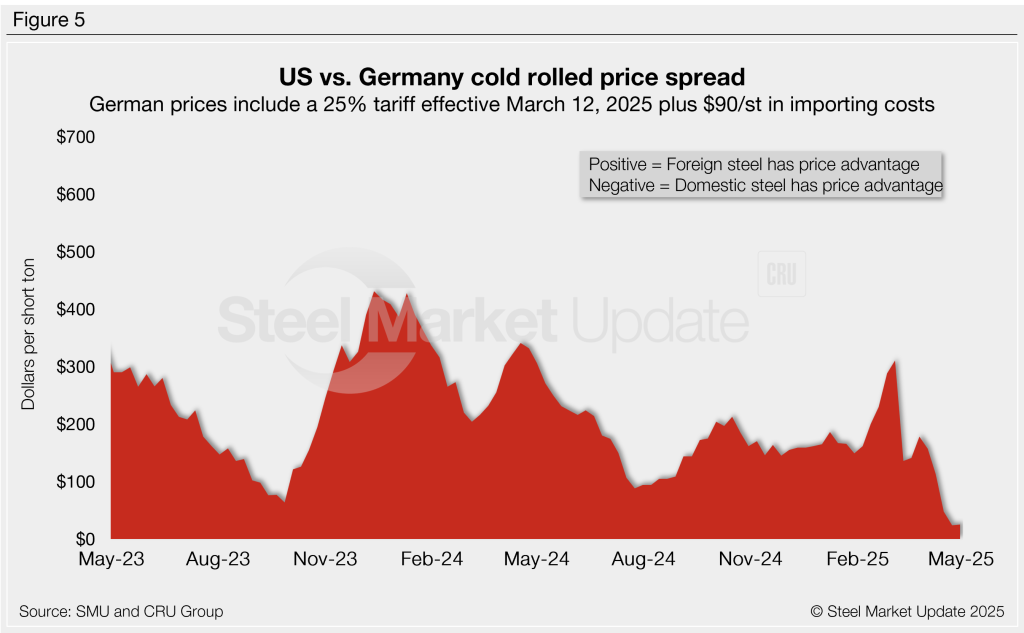
Editor’s note
We reference domestic prices as FOB the producing mill, while foreign prices are CIF the port (Houston, NOLA, Savannah, Los Angeles, Camden, etc.). Inland freight from either a domestic mill or a port is important to keep in mind when deciding where to source from. It’s also important to factor in lead times. In most market cycles, domestic steel will deliver more quickly than foreign steel. Note also that, effective March 12, 2025, undiluted Section 232 tariffs were reinstated on steel imports. Therefore, the Japan, South Korea, German, and Italian price comparisons in this analysis now include a 25% tariff.




